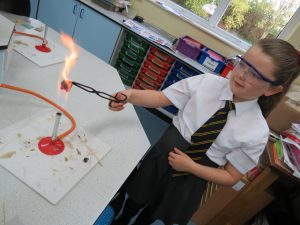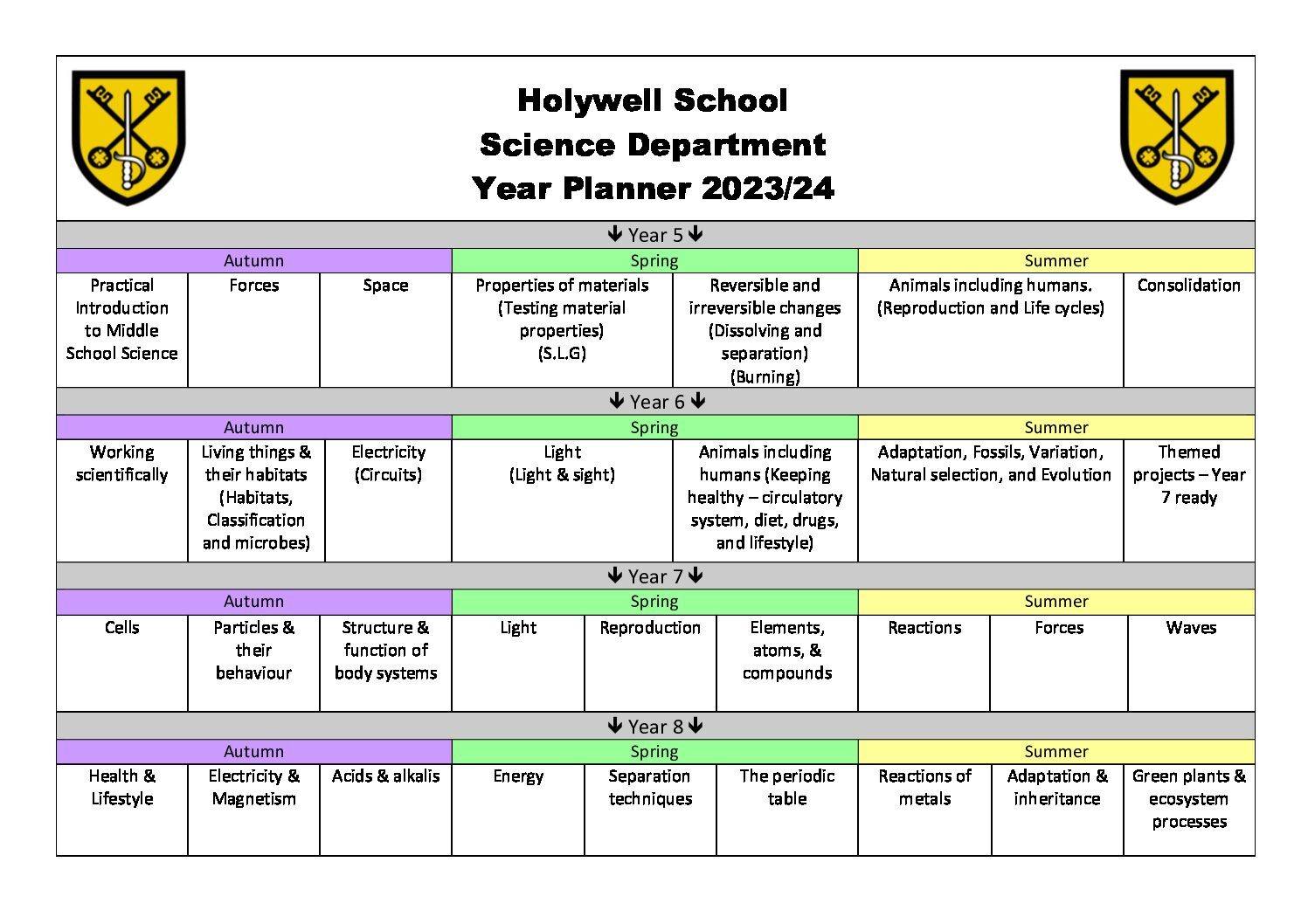Science.
Subject Leader: Mr N Colbourne

Vision / Intent:
Science is diverse and exciting. It helps students to explore the world around them and understand so many things that have such relevance to daily life. The principal focus of science teaching at Holywell is to develop students’ deeper understanding of the range of scientific ideas in the disciplines of biology, chemistry, and physics. Students will begin to see the connections between these subjects and become aware of some of the big ideas underpinning scientific knowledge and understanding.
All students will be taught essential aspects of the knowledge, methods, processes, and uses of science. We want students to develop their vocabulary, attain the highest standards and achieve personal success.
Our science curriculum aims to:
- Inspire and excite students about science.
- Stimulate curiosity, awareness, and challenge through scientific enquiry.
- Provide opportunities for collaboration and independent work to develop substantive and disciplinary knowledge.
We intend to make learning fun, active, and thought-provoking by delivering practically driven lessons that challenge, enthuse and engage students. Scientific investigation and the development of key skills is at the heart of our approach to teaching and learning. Above all, science is to be enjoyed.
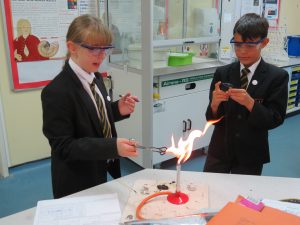
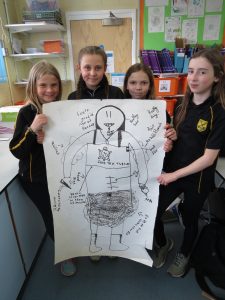
Approach / Philosophy:
Our curriculum has been designed to create the best opportunities to learn and understand science covering the required sections of the National Curriculum. It is distributed across two years of UKS2 and two years of KS3, in a sequence that provides continuity and progression in students’ learning.
Science across all year groups is taught in mixed ability groups. The students have two lessons of science per week in KS2 and three lessons per week in KS3. We deliver a topic-based curriculum, centred around big idea principles that balance practical experience and theory. We are fortunate in having an experienced team of teachers who provide the opportunity for all students to learn in many ways.
We have set out our curriculum to promote teaching for understanding rather than covering fragmented content. Ideas and skills are revisited and logically linked so that students know, remember, and understand more securely as they progress through each topic, academic year and key stage.
Our units of work are organised into termly topics. Units are sequenced so that they:
- build on preceding work and link with other units across key stages
- describe what different groups of students might be expected to achieve in particular units
- integrate scientific enquiry
- incorporate literacy, numeracy, ICT, and key skills
- provide opportunities to revisit topics and make connections between different aspects of science
- show how out-of-school activities can enhance learning in school
A key aspect of studying science is ‘working scientifically’. This permeates our curriculum design, and we hope to instil a passion for the subject and encourage students to question and explore, whilst developing the key skills that form the basis for success (planning, designing, experimentation, analysing, concluding, and evaluating). Articulating findings both verbally and on paper, applying knowledge and the acquisition of scientific language are all key to success. As a result of our approach, we aim to prepare our students for the challenges of the future, their transition between key stages, and to be ready to study sciences up to and beyond GCSE.
Our curriculum is broad and balanced and promotes:
- direct, interactive teaching, through whole-class and small-group work, including the demonstration of essential practical and technical skills
- engagement by all students in tasks and activities that, even when differentiated, relate to a common objective for the whole class
- extra support for students who need it to keep in step with the majority of their year group
- regular opportunities to develop scientific language and mental and visualisation skills through oral work and modelling
- opportunities for students to use and apply their understanding of key scientific ideas, either on their own or with others, with varying degrees of support
- opportunities to carry out extended investigative work
- time for students to reflect on their learning.
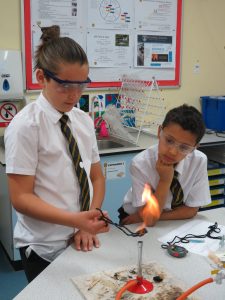
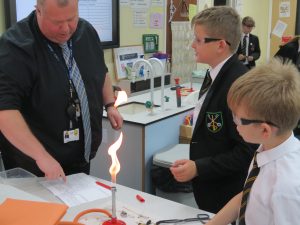
Department Members
| Mr N Colbourne | Science Subject Leader |
| Mrs L Day | Practical Technician |
| Miss M Hayle | Science Teacher |
| Miss K Potter | Science Teacher |
| Mr C Smith | Science Teacher |
| Mr J Ulph | Science Teacher |
Topic Overviews:
Year 5
- Practical introduction to Middle School Science
- Properties of materials
- Reversible and irreversible changes
- Earth and space
- Forces
- Animals including humans - Reproduction and Life cycles
Year 6
- Working scientifically
- Animals including humans – Keeping healthy
- Electricity and circuits
- Living things and their habitats – Classification
- Light
- Adaptation, inheritance and evolution
- Themed projects (Year 7 ready)
Year 7
- Cells
- Particles and their behaviour
- Structure and function of body systems
- Light
- Reproduction
- Atoms, elements and compounds
- Reactions
- Forces
- Waves
Year 8
- Health and lifestyle
- Electricity and magnetism
- Acids and alkalis
- Energy
- Separation techniques
- The periodic table
- Reactions of metals
- Adaptation and inheritance
- Green plants and ecosystem processes
